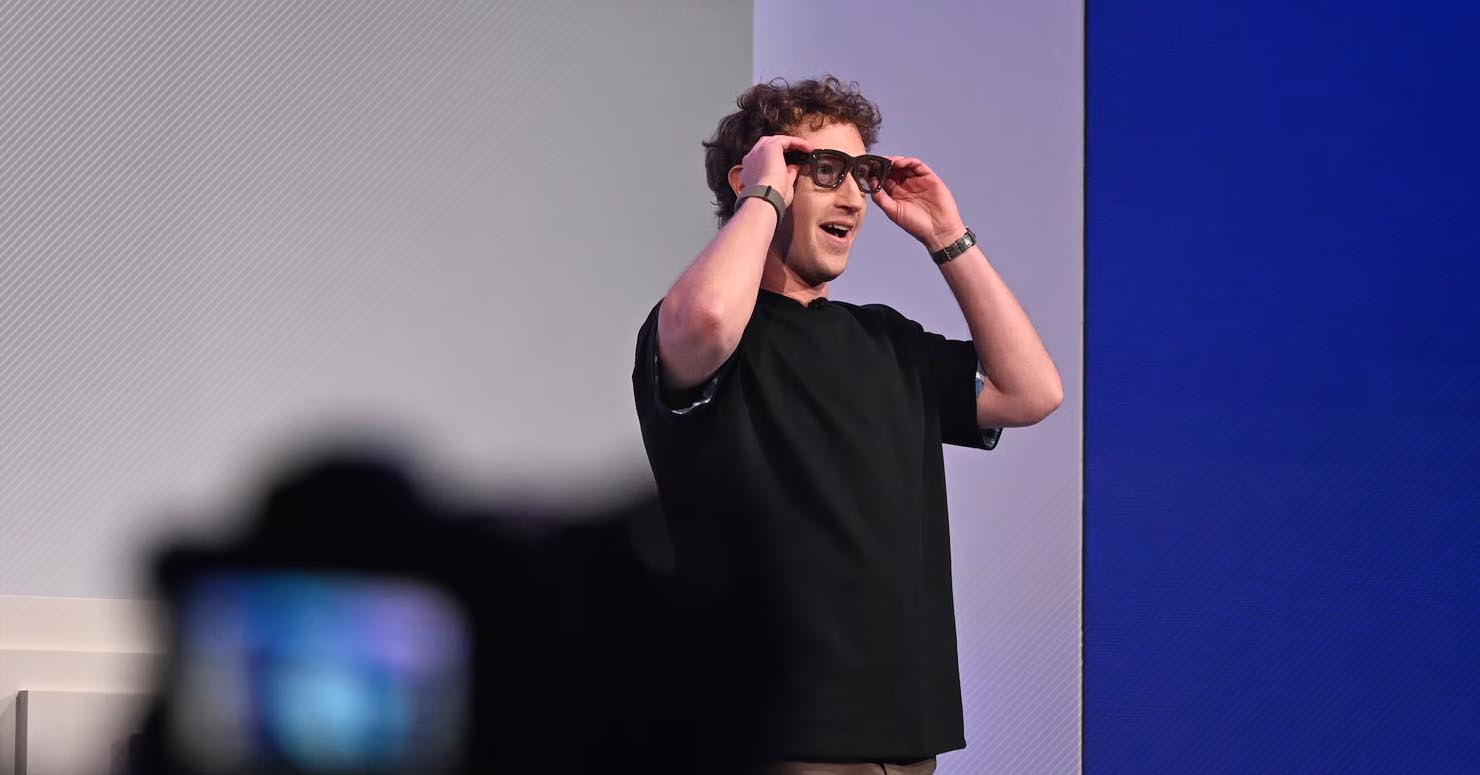Meta’s ambitious foray into AI-powered smart glasses recently hit a very public snag, turning a highly anticipated demonstration by CEO Mark Zuckerberg into an embarrassing viral moment. What was meant to showcase the seamless integration of artificial intelligence into daily life, particularly through the new Ray-Ban Meta Smart Glasses, instead highlighted the significant challenges and present limitations of the technology. The incident, as widely reported and critiqued by outlets like Defector, has cast a shadow on Meta’s grand vision for an AI-first future.
The core issue wasn’t just a minor glitch; it was a fundamental Meta AI smart glasses failure to perform basic, promised functionalities, leaving Zuckerberg visibly flustered. This public stumble serves as a stark reminder that while generative AI is making incredible strides in labs, translating that intelligence into reliable, real-world consumer hardware remains an uphill battle. This article by Owais Makkabi dissects what went wrong, embeds the critical video moments, and analyzes the broader implications for Meta’s future in this competitive space.
The Demonstration That Went Sideways
Mark Zuckerberg’s livestreamed demonstration was designed to illustrate the intuitive capabilities of the Ray-Ban Meta Smart Glasses. He aimed to show how the integrated Meta AI could identify objects, provide real-time information, and even translate languages on the fly all through voice commands and what the glasses “saw.” However, the reality fell far short of the aspiration.
The most widely circulated clip shows Zuckerberg attempting to use the glasses’ real-time translation feature during a live WhatsApp video call. The AI repeatedly failed to translate correctly, leading to awkward pauses and communication breakdowns. The “smart” glasses simply weren’t smart enough to handle a common, real-world scenario.
Video 1: The Demonstration (Overall Showcase)
View this post on Instagram
The general demonstration, while attempting to show off features like object identification, often suffered from noticeable delays and less-than-perfect accuracy. These moments, while perhaps not outright failures, chipped away at the “seamless” and “magical” experience Meta was trying to convey. It underscored that the Meta AI smart glasses are still a long way from the intuitive, always-on assistant users expect from such futuristic devices.
The WhatsApp Call: Where the AI Truly Stumbled
The most cringeworthy moment, and arguably the most damaging to Meta’s credibility in this space, came during the attempted WhatsApp video call translation. Zuckerberg’s repeated attempts to make the feature work, met with confused responses from the person on the other end of the call, vividly illustrated the current limitations of real-time AI processing in a noisy, unpredictable environment.
Video 2: The WhatsApp Call Failure (Embarrassing Moment)
View this post on Instagram
This particular incident was a critical failure on multiple fronts: it exposed the lack of robustness in the AI’s language processing, its inability to handle natural conversational flow, and the significant latency involved. For a product being positioned as a revolutionary communication tool, a breakdown in basic translation during a live call is a severe indictment. It begs the question of whether the technology is truly ready for prime time or if it’s still largely a proof-of-concept. The Meta AI smart glasses failure during this crucial moment will likely be remembered.
The Broader Implications for Meta’s AI Future
This public flop is more than just a bad day for Mark Zuckerberg; it has broader implications for Meta’s multi-billion-dollar investment in the metaverse and AI gadgets and reviews. The company is betting heavily on these technologies as its next frontier, aiming to move beyond smartphones and traditional social media. However, consistent public demonstrations that underperform expectations can severely damage consumer trust and investor confidence.
Critics will point to this as evidence that Meta is still struggling to deliver on its ambitious promises for truly intelligent, integrated AI. While companies like Google are showing incredible strides with models like Gemini solving complex coding problems, as highlighted in our recent article about how Gemini AI solved an ICPC problem, Meta’s public-facing AI in consumer hardware appears to be lagging significantly in practical application.
The lesson from this Meta AI smart glasses failure is clear: the leap from impressive lab demos to reliable consumer products is enormous, particularly when dealing with the complexities of real-time AI and natural human interaction. Meta will need to go back to the drawing board to ensure its next public showcase truly delivers on the “smart” in smart glasses.
Frequently Asked Questions (FAQ)
1. What are Meta AI smart glasses?
Meta AI smart glasses are a collaboration between Meta and Ray-Ban, integrating artificial intelligence capabilities into fashionable eyewear. They are designed to offer features like voice commands, real-time information, and translation through integrated AI.
2. What happened during Mark Zuckerberg’s demonstration?
During a live demonstration, Mark Zuckerberg experienced multiple failures, particularly with the real-time translation feature during a WhatsApp video call. The AI repeatedly failed to translate correctly, leading to communication breakdowns and visible embarrassment for the Meta CEO.
3. What does this mean for Meta’s AI strategy?
This public failure highlights the significant challenges Meta faces in bringing reliable, real-world AI capabilities to consumer hardware. It suggests that while Meta is investing heavily in AI, the practical application in its smart glasses is still immature and prone to critical errors, potentially affecting consumer trust.
4. Are Meta AI smart glasses available to the public?
Yes, the Ray-Ban Meta Smart Glasses are available for purchase, offering features like hands-free photos, videos, and integrated AI assistance. However, the recent demonstration indicates that some AI features may not perform as seamlessly as advertised.








